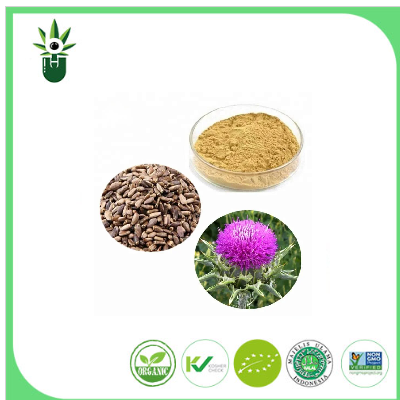What Are Plant Extracts and How Do They Benefit Us?
2024-12-13
Plant extracts have gained significant popularity in recent years, especially in the health and wellness sectors. But what exactly are plant extracts, and why are they so widely used in various industries? From skincare products to dietary supplements, plant extracts play a crucial role in improving health, enhancing beauty, and even contributing to sustainable solutions. In this blog, we’ll explore what plant extracts are, how they are made, and the numerous benefits they offer.
What Are Plant Extracts?
Plant extracts are concentrated substances derived from plants. These extracts contain the bioactive compounds of the plant, which are responsible for its medicinal, therapeutic, or aromatic properties. The extraction process involves drawing out these beneficial compounds from the plant's leaves, roots, flowers, or seeds using various methods such as solvent extraction, steam distillation, or cold pressing.
The resulting extracts are often used in various forms, including liquids, powders, or oils, and are incorporated into products like herbal remedies, beauty treatments, essential oils, and even food additives. The versatility of plant extracts makes them a valuable resource in many different fields.
How Are Plant Extracts Made?
The process of extracting plant compounds can vary depending on the plant type and the desired properties of the final product. Common methods include:
1. Solvent Extraction: This method uses a solvent, like alcohol or water, to dissolve the active compounds from the plant. After extraction, the solvent is evaporated, leaving behind a concentrated plant extract.
2. Steam Distillation: Often used for extracting essential oils, this method involves passing steam through plant material. The steam helps to release volatile compounds, which are then condensed and collected as oil.
3. Cold Pressing: Typically used for citrus fruits, this method involves pressing the plant material to extract oils, which are then filtered and purified.
4. CO2 Extraction: This modern technique uses carbon dioxide under high pressure to extract essential oils and other active ingredients. It’s known for producing high-quality, pure extracts without the use of heat or solvents.
What Are the Benefits of Plant Extracts?
1. Health Benefits
Plant extracts have long been used in traditional medicine for their therapeutic properties. Many extracts contain antioxidants, anti-inflammatory compounds, and vitamins that can support overall health. For example, extracts from herbs like echinacea and ginseng are known for boosting the immune system and increasing energy levels.
Additionally, plant extracts like ginger and turmeric have anti-inflammatory properties that can help alleviate pain and reduce inflammation, making them valuable in managing conditions like arthritis or digestive issues. Some plant extracts are also known to help in detoxifying the body and improving digestive health.
2. Skin Care and Beauty
Plant extracts are widely used in the beauty industry for their ability to nourish, protect, and rejuvenate the skin. For example, aloe vera extract is well-known for its soothing and hydrating properties, making it a common ingredient in moisturizers and after-sun care products. Similarly, extracts from green tea and chamomile are used for their antioxidant and anti-aging effects.
Other plant extracts, like those from rosehip and lavender, are used for their calming properties and ability to improve skin elasticity. Rich in vitamins, minerals, and essential fatty acids, these extracts can promote healthier, more youthful-looking skin.
3. Flavoring and Culinary Use
Beyond health and beauty, plant extracts also serve an important role in the culinary world. Many plant extracts, such as vanilla, mint, or citrus extracts, are used to flavor food and beverages. These extracts provide natural flavors, often without the need for artificial additives or sweeteners.
Plant extracts are also used in the preparation of herbal teas and tinctures, providing a natural way to incorporate the benefits of plants into daily diets. For example, peppermint extract is used not only for its refreshing taste but also for its ability to soothe digestive discomfort.
4. Natural Pest Control
In addition to their health and culinary applications, plant extracts can be used for natural pest control. For example, neem extract is a well-known natural insect repellent and pesticide. The compounds in neem have insecticidal properties that can help protect crops from pests without the use of harmful chemicals.
Essential oils like citronella and eucalyptus are also used in natural insect repellents, offering a safer alternative to chemical-laden products.
5. Sustainability and Eco-friendly Solutions
Plant extracts are an eco-friendly alternative to synthetic chemicals in various industries. They are biodegradable, non-toxic, and derived from renewable resources. This makes them a sustainable option in everything from beauty products to cleaning supplies.
Many industries are shifting towards plant-based solutions to reduce their carbon footprint and environmental impact. For instance, plant-based extracts are increasingly used in cleaning products to replace harsh chemicals that can pollute the environment.
Popular Plant Extracts and Their Uses
- Aloe Vera: Used for soothing sunburns, moisturizing the skin, and promoting healing.
- Ginseng: Known for boosting energy and improving mental clarity.
- Lavender: Commonly used in aromatherapy for its calming and relaxing properties.
- Green Tea: High in antioxidants, used in skincare and supplements to promote healthy skin and overall wellness.
- Turmeric: Known for its anti-inflammatory and pain-relieving properties.
- Peppermint: Used for its refreshing taste, digestive benefits, and as a natural remedy for headaches.
Conclusion
Plant extracts have a wide range of uses and benefits that extend across health, beauty, food, and even sustainable practices. From boosting immunity and soothing the skin to offering natural alternatives in pest control and cleaning, the power of plant extracts is undeniable. As more people seek natural and eco-friendly solutions, plant extracts are becoming increasingly essential in various industries.
By harnessing the power of plants, we can enjoy a healthier lifestyle, a more sustainable future, and a deeper connection to the natural world around us. Whether in a bottle of essential oil, a bottle of herbal tea, or in a cosmetic product, plant extracts continue to offer us remarkable benefits, making them a key component of our everyday lives.



